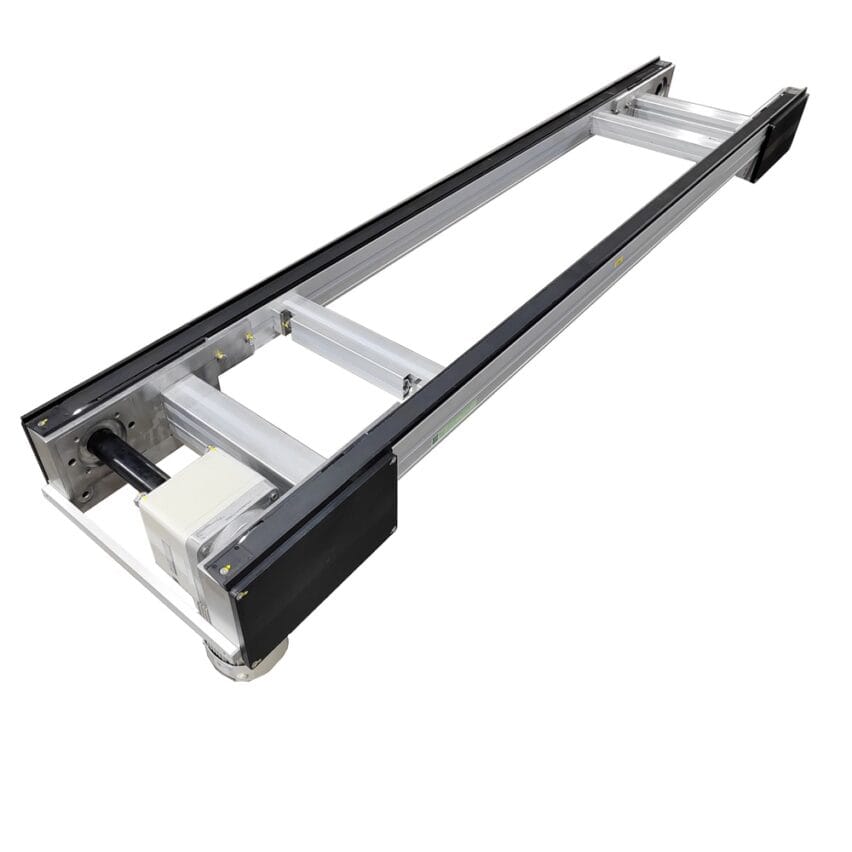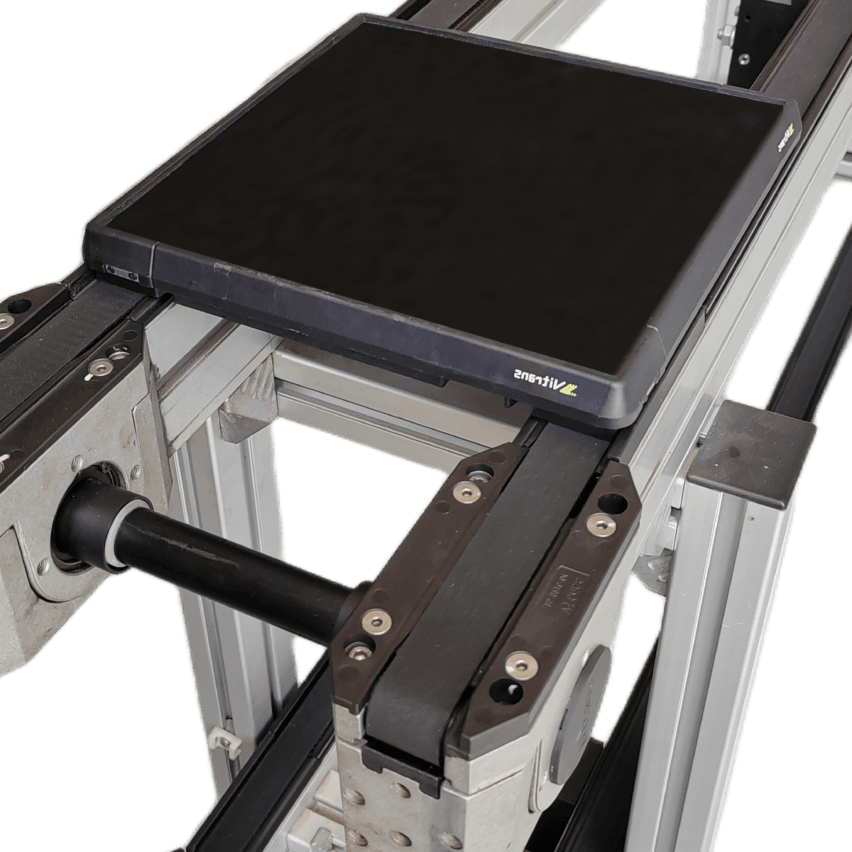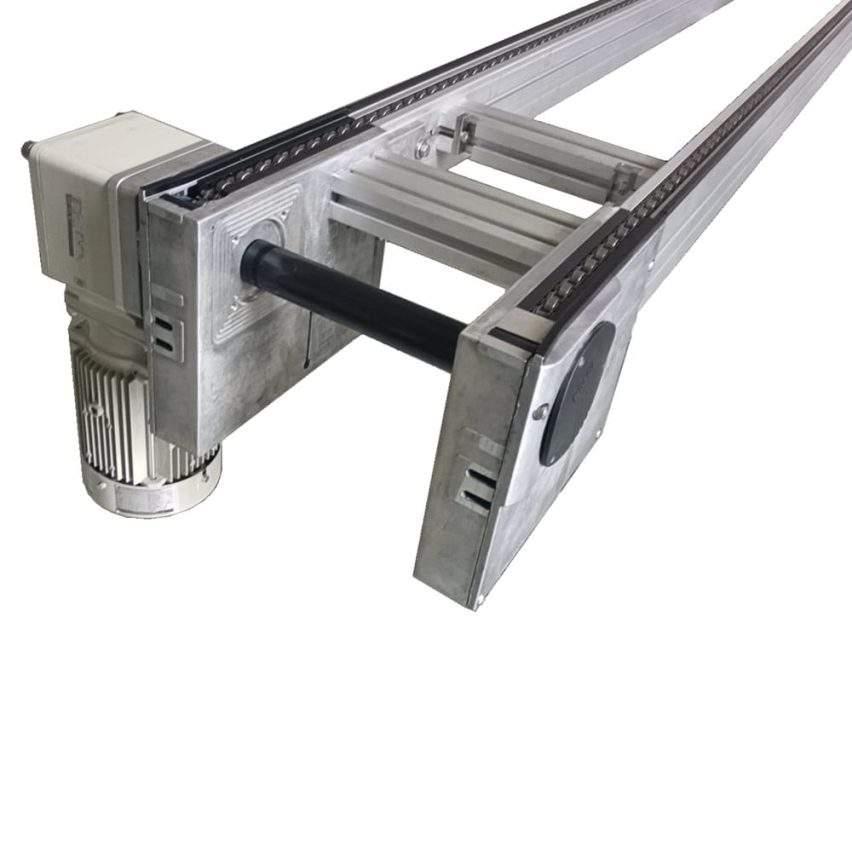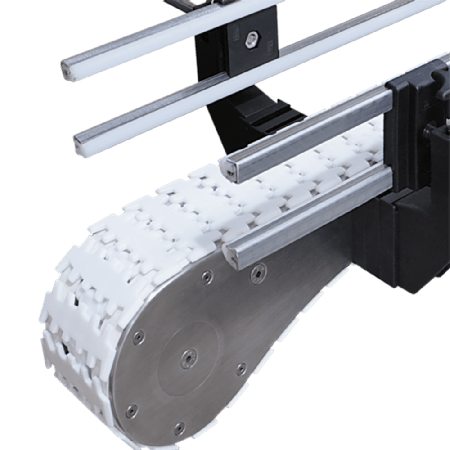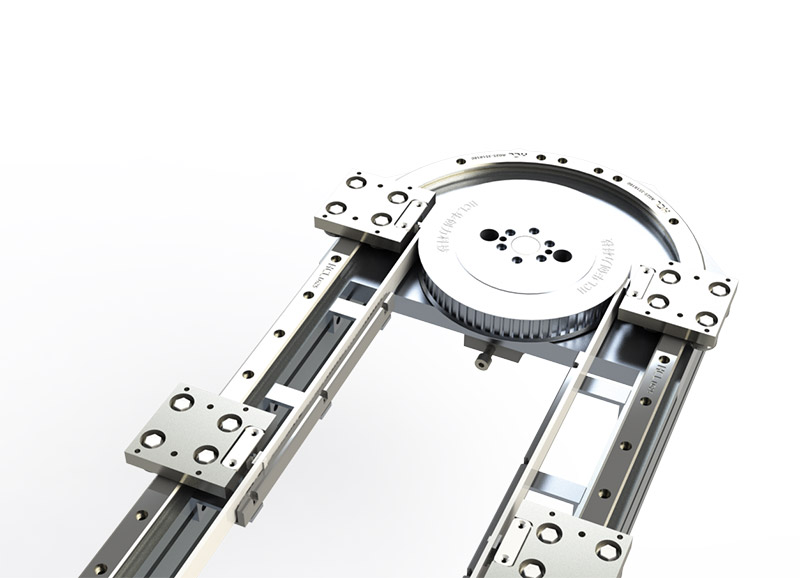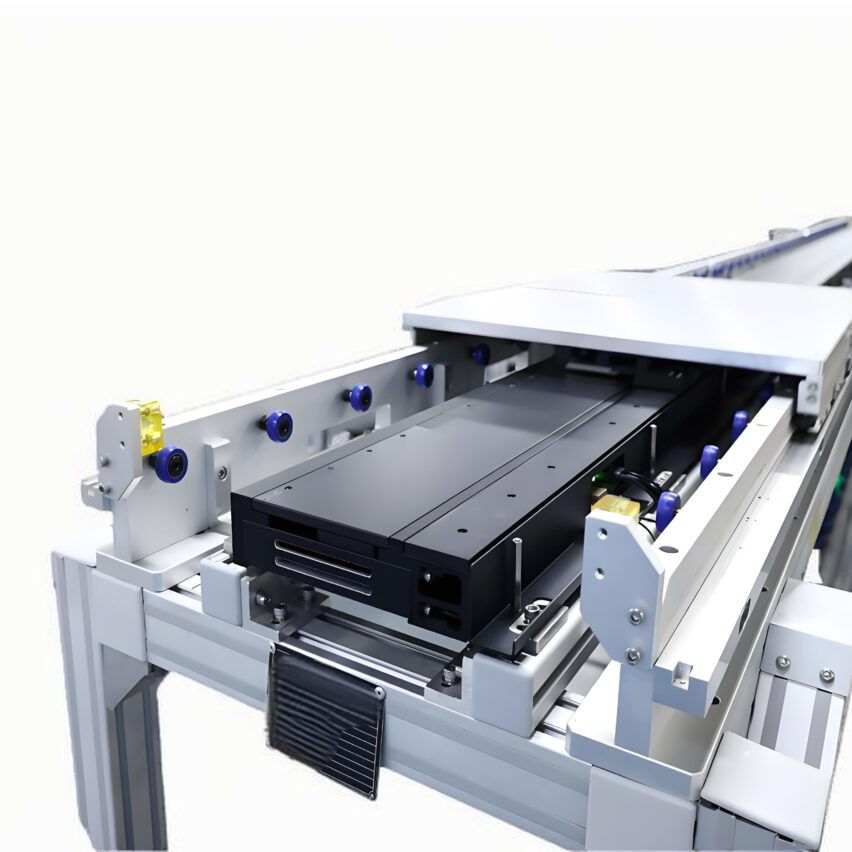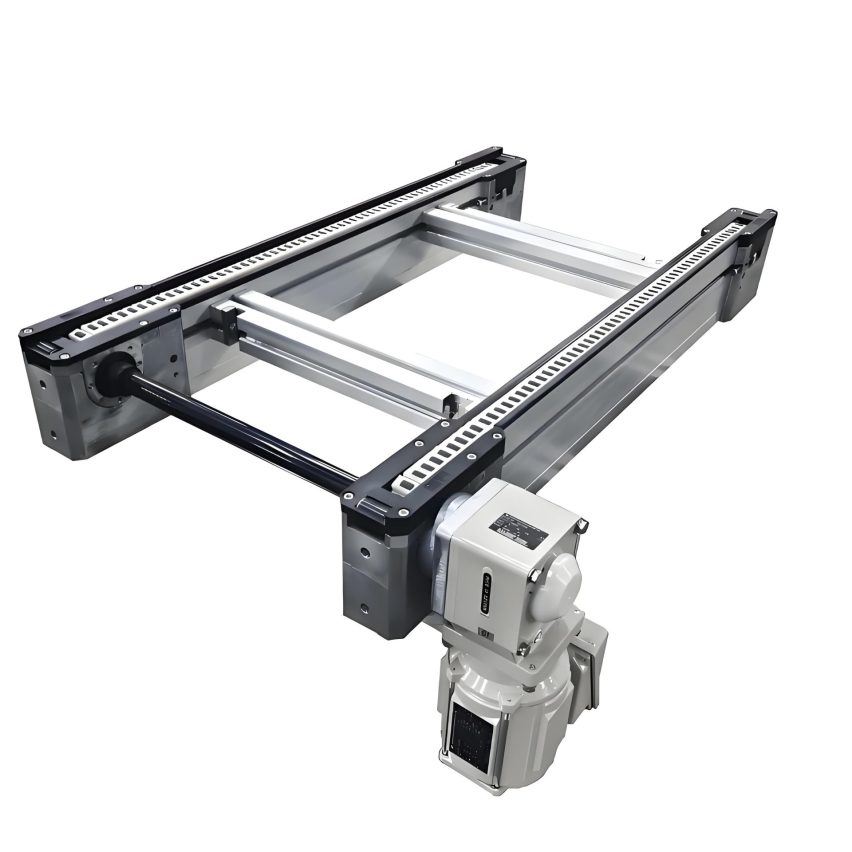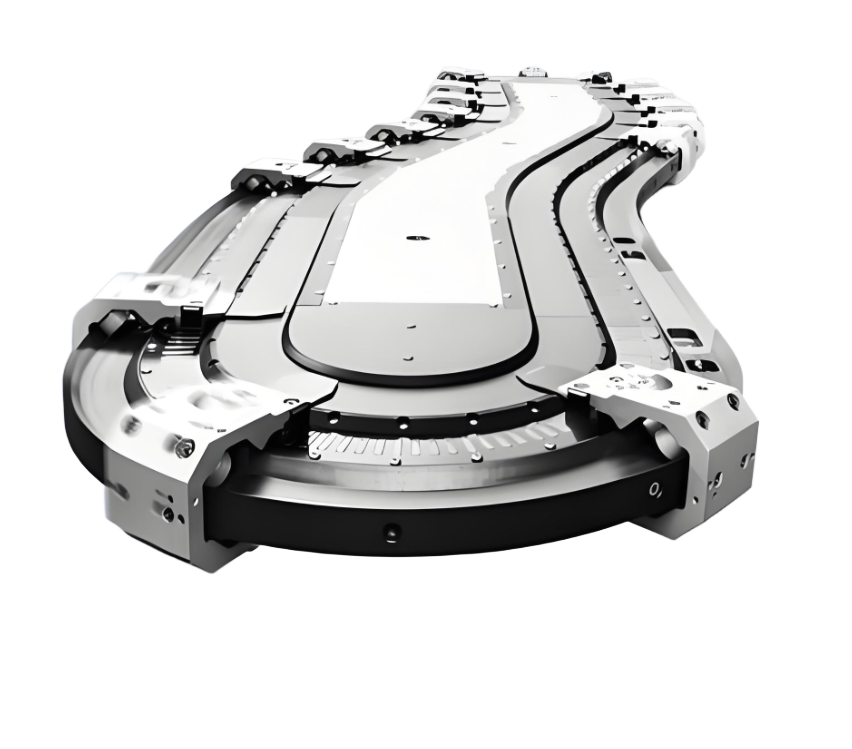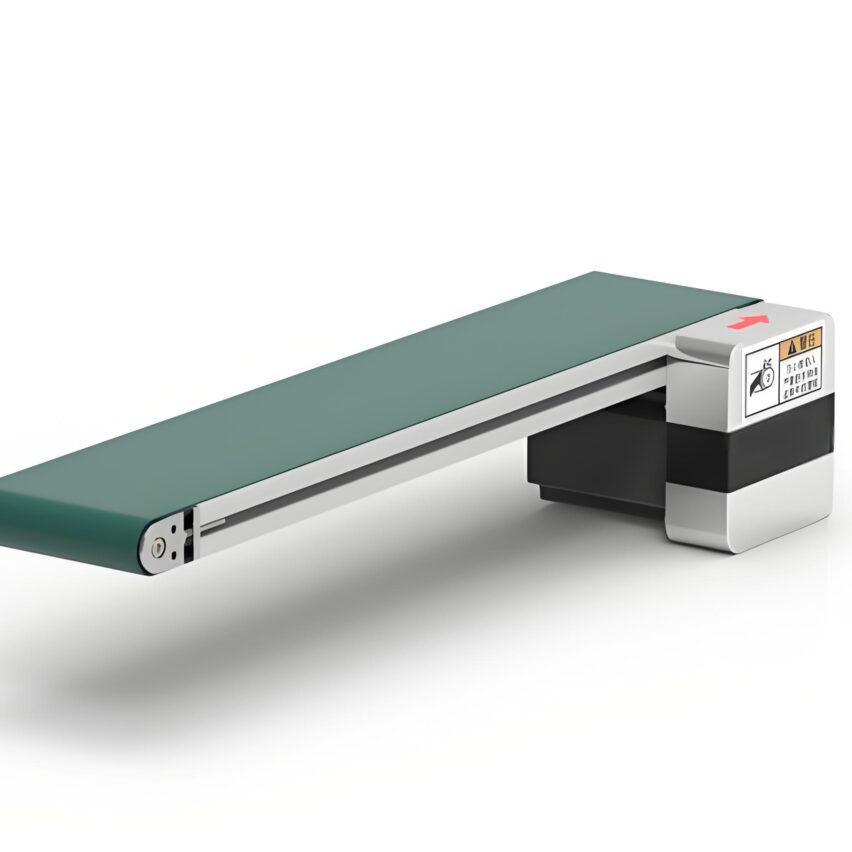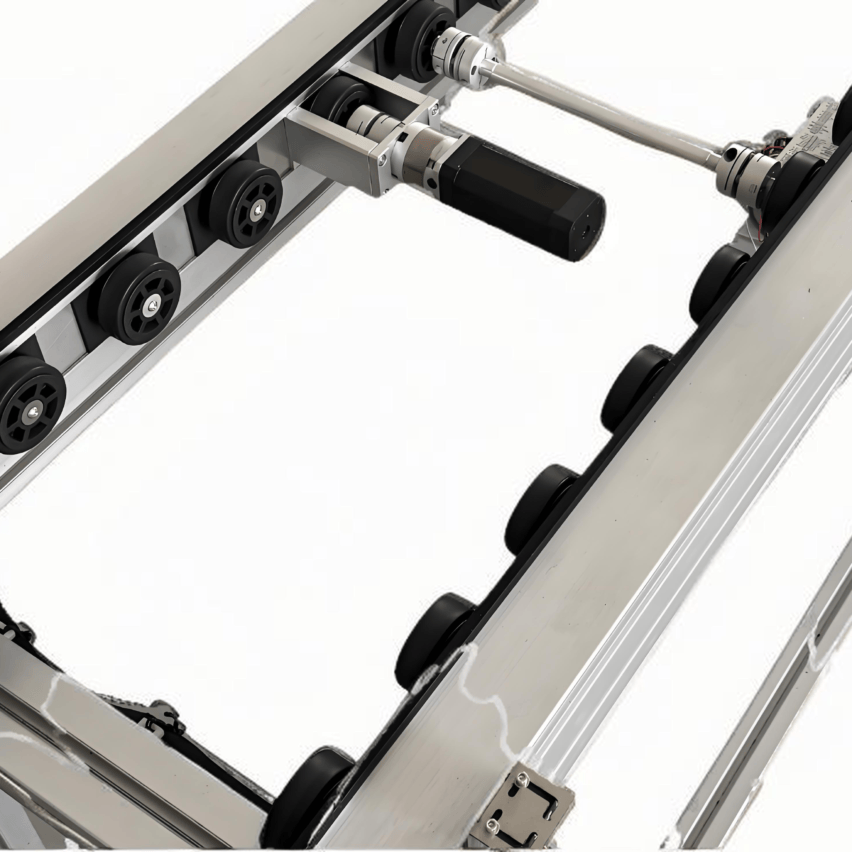Core features and technical advantages
08BSStainless Steel Speed Chain的核心价值在于Precise fusion of corrosion resistance and mechanical differentials. Its pitch 12.7mm (8mm specification) chain link design achieves 2.5~3 times the actual conveying speed of the workpiece plate through the ratio of roller diameter (D) to roller diameter (d) (usually D/d=2~3). Stainless steel material (304/316 grade) gives it triple irreplaceability:
- Corrosion Resistance Limit: Resistant to 5000 hours of salt spray test in acid and alkali environment of pH 2~12, the life span is 3 times longer than carbon steel chain;
- Sanitary Surfaces: Mirror polishing (Ra ≤ 0.4μm) eliminates microbial residues and is FDA and GMP food and pharmaceutical certified;
- Conductive closed-loop design: Workpiece plate conductive row and chain conductive wheel form <4Ω resistance circuit, eliminating the threat of 5kV static electricity.
In a seafood processing plant in Qingdao, I witnessed 08BS stainless steel chains running continuously for 18 months without rusting in a salt water spray environment - thisSymbiosis between materials science and mechanical engineeringIt is precisely the key for industrial equipment to break through environmental constraints.
Industry customised application paradigm
Food Pharma: Aseptic Conveying Revolution
A vaccine filling line adopts PTFE-coated 08BS chain and achieves three breakthroughs in nitrogen-filled environment:
▶︎Positional accuracy: Magnetic encoder positioning error <0.1mm, ampoule breakage rate reduced to 0.3‰;
▶︎Colony control: 30% cleaner than conventional conveyor lines, ISO 14644 Class 5 certified;
▶︎heat resistance: Reduction of 95°C steam sterilisation cycle to 15 minutes per cycle.
Electronics manufacturing: micron level anti-static
Shenzhen LED chip factory case reveals the value of technology coupling:
- Nitrogen sealed chamber + stainless steel chain, particulate contamination control to Class 10;
- Vibration isolation base amplitude reduced by 60%, wafer yield improved to 99.98%.
Chemical industry: corrosive environment breakthrough
In the chlor-alkali conveying line of Shandong chemical plant, 316L stainless steel chain beats carbon steel chain in three key performances:
| norm | Carbon steel chain (6 months) | 08BS stainless steel chain (18 months) |
|---|---|---|
| Link corrosion rate | 38% | <3% |
| Maintenance downtime | 22 hours/month | 1.5 hours/month |
| replacement cost | ¥120,000 per visit | 0 (continuous use) |
| Data from Chemical Equipment Durability Report 2024 |
Industry Trends: The single conveyor function is being upgraded tocomposite architecture--such as a photovoltaic plant fusion of stainless steel doubling chain and magnetic levitation section, crystalline silicon fragmentation rate from 3 ‰ to 0.8 ‰.
Intelligent manufacturing upgrade path
1. Predictive maintenance system
Vibration sensors are embedded in the chain links and faults are predicted by FFT spectrum analysis. Realised after application in a steel plant:
▶︎ Unplanned downtime reduced by 70%|Spare parts inventory reduced by 45%|Life expectancy extended to 7 years
2. Dynamic topology control
5G edge computing based scheduling system for real-time reconfiguration of delivery paths:
- In the event of a faulty work station, the jacking and panning machine automatically diverts the workpiece;
- Line utilisation increased from 78% to 92% and energy consumption decreased by 19%.
3. Breakthroughs in energy autonomy
The experimental hydrogen fuel cell drive unit (power density ≥ 3kW/m³) with direct photovoltaic supply is realised in the ore line of Qingdao port:
▶︎ Energy consumption reduced by 52%|Carbon emission reduced by 38 tonnes/year|Noise level ≤65dB
safety alert:: In 2024, a smart factory suffered more than $10 million in damages due to a series of collisions of work plates caused by hacking into the control system -Physical Isolation ProtocolMust be strengthened in tandem with IoT security.
Ask yourself the core question.
Q1: Does the stainless steel material affect the mechanical properties of the speed chain?
- Strength Compensation: Through cold work hardening treatment, the tensile strength reaches 850MPa, which is only 5% lower than ordinary steel;
- Friction optimisation: Stainless steel chain plates nested in engineering plastic rollers to balance corrosion resistance and friction coefficient;
- temperature adaptation: -20~150℃ working conditions need special grease (such as perfluoropolyether oil).
Q2: How to optimise the customisation cycle time and cost?
point General Periodicity Accelerated programme Confirmation of requirements 7 days 3D scanning for on-site modelling (reduced to 2 days) Module production 25 days Parallel manufacturing + laser cladding (reduced to 15 days) Installation and commissioning 10 days Digital twin pre-commissioning (reduced to 5 days) Based on Suzhou Global 2025 Rapid Delivery Project
Q3: How is the return on investment quantified?
Take the example of a production line with a capacity of 500,000 notebooks per year:
norm Carbon Steel Speed Chain 08BS Stainless Steel Chain initial investment ¥1.5 million. ¥2.1 million Maintenance costs/year ¥180,000 ¥60,000 Loss of downtime/year ¥1.2 million. ¥150,000 recovery cycle - 22 months Note:According to the average daily output value of ¥500,000
The next decade: Self-repairing microencapsulated lubricant (automatic release on wear) with magnetorheological fluid links (instantaneous hardness switching) will turn maintenance logic on its head -smart materialis redefining the value boundaries of the stainless steel multiplier chain.

